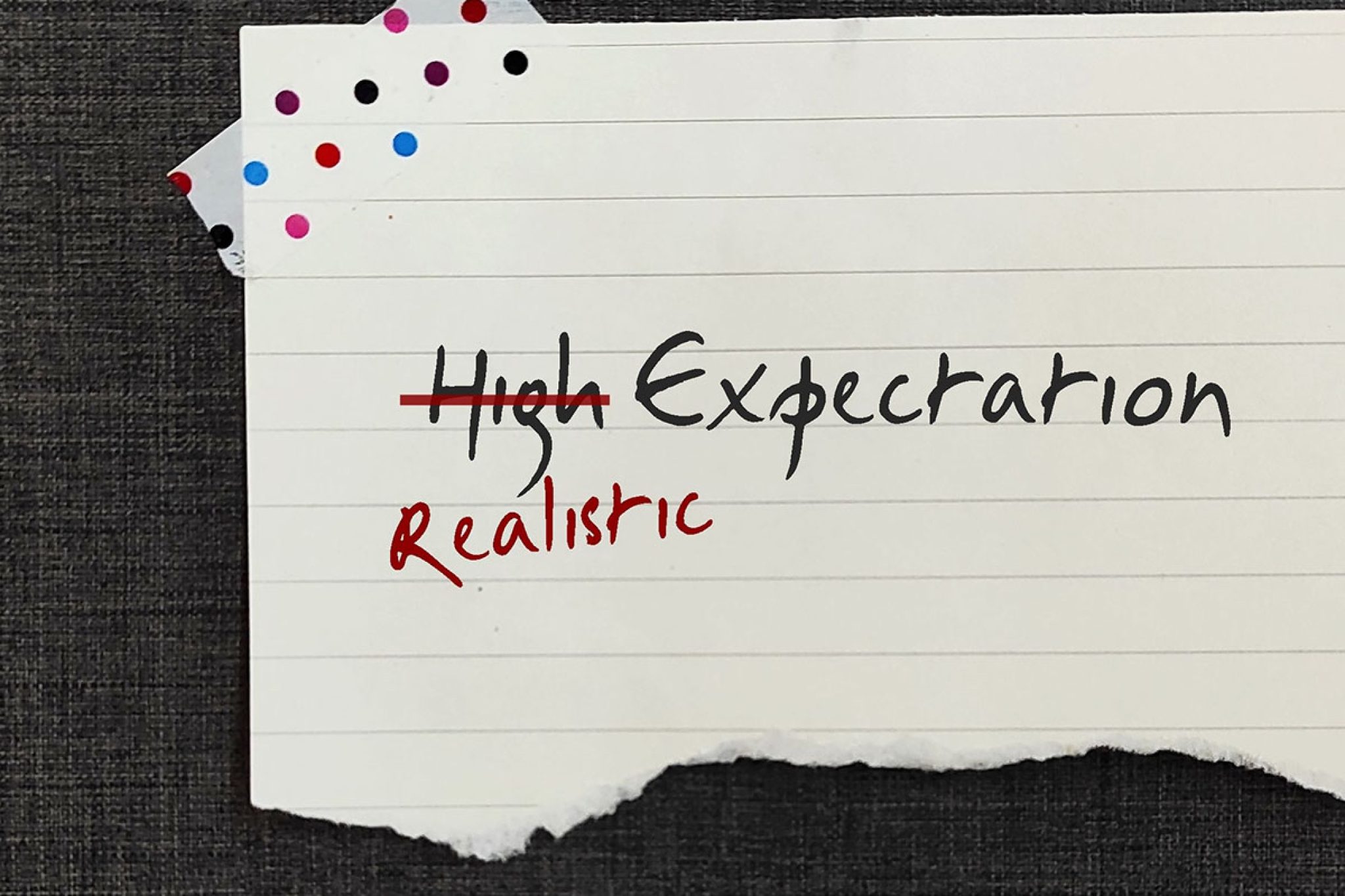In financial planning we talk a lot about goals. Setting goals is fundamental to your financial plan, as without them, how would you know what you were aiming for?
Goals are within our control. We can adapt them throughout our lives depending on our circumstances and changing priorities.
We are also in control of our own behaviour. Applying good habits regularly over a long period of time is likely to lead to success, whether this is in the realm of finance, education, or fitness.
But some things are outside our control. For example, financial markets, the economy, and world events. We also regularly deal with the unexpected when it comes to health and family life.
When things don’t go to plan, we can only control how we react. For example, if you skip the gym one day, do you give up or adapt your schedule? If the market takes a downturn, do you weather the storm or panic and sell your investments?
The key is not to try and avoid the unexpected, but to build in realistic expectations and adapt as required.
Investment Risk and Reward
Risk is linked to reward, which means that the higher the returns you need to achieve, the more risk you will need to take to get there.
Over a long period, portfolios which hold mostly equities are likely to produce the highest returns. Over shorter timescales, there might not be enough time to smooth out market volatility, which means you can lose money.
Your expectations around investment returns should therefore depend on how much risk you take with your investments, which in turn, should depend on your goals, time horizon, and how much volatility you can cope with.
Our TRAILS™ portfolios have historically returned between 4.8% and 9.5% (before charges) depending on the risk level. It may be reasonable to base your plan on conservative, average net returns of c.3.3% – 8.0% per annum depending on your asset allocation.*
* As a business, we project our financial plans at 6% net annual returns if in Peak District or above and below this between 3-5% per annum.
Of course, this doesn’t mean you will achieve the same return every year. An average growth rate of 5% can mean losing 10% in year 1 and gaining 17% in year 2 (simplified example). The 10% loss does not mean your plan has failed – in fact, the market needs this volatility to function properly. It is only over the longer term that you will see the benefits of investing.
To give your investment plan the best chance of success:
- Invest in a wide range of assets from a variety of sectors.
- Avoid trying to time the market or making judgement calls about what will perform and when.
- Do not take money out during a downturn, as you could miss out on the recovery.
- Keep a cash buffer for short-term requirements so that you don’t need to sell under pressure.
- Review your investments regularly and make small adjustments if your plan drifts off-track, for example, by saving more or adjusting your goal.
The Cost of Living
Spending patterns change over the course of a lifetime, whether you are single, in a couple, raising a family, or retired.
Careful budgeting and spending can help you build good habits that will benefit you for the rest of your life.
It’s also a good idea to map out roughly what you expect to spend at various life stages, and to make your assumptions as conservative as possible.
Many people fail to consider inflation in their financial plans. Of course, in some years you won’t increase your spending at all, or can make simple budget adjustments to stay on track. But with inflation peaking at over 11% in 2022, it’s clear that the cost of living can rise very quickly.
Like with investment returns, assuming an inflation rate of 3-4%* per year does not mean that you will increase your spending by exactly this much every year. But it does give you flexibility to increase your spending as needed.
*At Tandem, we think you should ‘expect’ inflation to be a factor and as such as use 3% per annum as a long term average annual inflation rate in all of our projections.
Career Progression
Of course, the amount you can spend depends on how much you earn. This affects not only your daily lifestyle, but also the amount you can save for the future. You might need to make difficult choices about balancing current needs with your future goals.
Generally, it’s a good idea to assume that your earnings will increase at a rate below inflation, and to ignore any potential pay increases or uncertain cash inflows.
Gaining a promotion, changing jobs, or starting a business can be included within your goals and factored into your plan when they occur.
Family Life
When you have a family, the unexpected is a daily occurrence. Some of the strategies you can put in place when navigating family life include:
- Making sure you have an emergency fund to deal with any unexpected spending.
- Setting up life cover so that your family is protected if the worst happens.
- Saving for your children (for example, in Junior ISAs) to give them the best start in life.
You can’t control everything your children do, but you can give them the tools to make informed, appropriate decisions as they get older. A sound financial education is one of the best things you can pass on to your child.
Health
Financial success depends on good health, and there is strong evidence that the reverse is also true up to a point.
With health and money being interlinked, it’s important to factor in wellbeing into your financial plan. For example:
- Taking care of your health by eating well and exercising.
- Arranging financial protection to provide an income or lump sum if you are seriously ill.
- Making time for hobbies, relaxation, and the people who matter.
Of course, another risk is that your money will outlive you. For this reason, it’s a good idea to assume a long life expectancy (e.g. age 100+) when creating your financial plan, even if you don’t think this is realistic.
Setting healthy expectations is vital in financial planning as in all areas of life. If you set the bar too low, you risk not achieving your potential. But if you set the bar too high, you are risking disappointment. The key is to get the balance right.
Please don’t hesitate to contact your adviser at Tandem to find out more about the topics covered.




